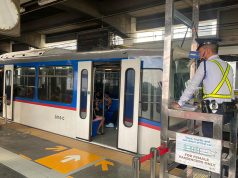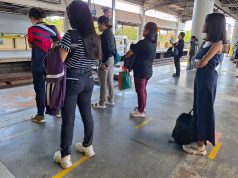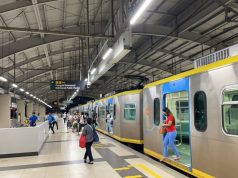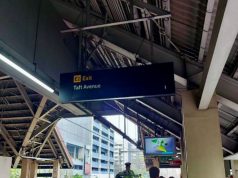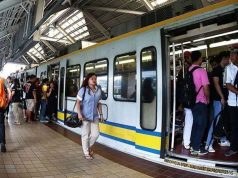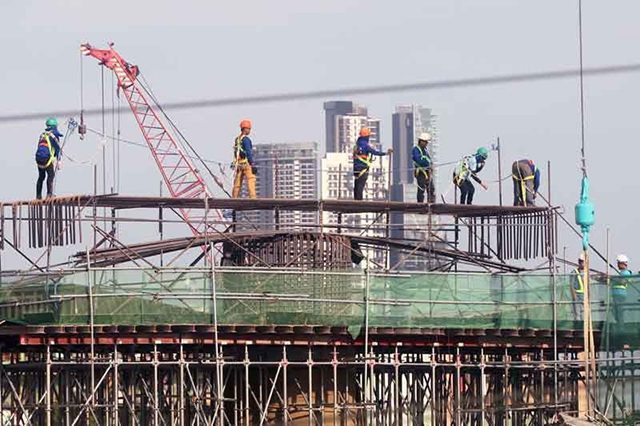
Acclaimed writer Wilfredo Pascual Jr. who returned to the Philippines after several years wrote a lengthy criticism on Facebook against the state of the mass transport system in Metro Manila.
Pascual, a Carlos Palanca awardee for Literature, recalled his ordeals when he tried using public transport to go around the capital during his stay in the country last year.
I left the country twenty-five years ago. Ngayon lang nangyari na umuwi ako sa Pilipinas ng tatlong beses sa isang taon….
Posted by Wilfredo Pascual on Tuesday, January 1, 2019
He shared that this was the first time he went back and forth from the United States to the Philippines thrice.
“In 2018, I mostly stayed at Airbnbs in Manila and got around through Grab kasi hindi ko na makita yung mga dating landmarks. Pero hangga’t kaya pinipilit kong magcommute. Hindi ko kinaya. Pero hindi ko sinukuan,” he shared.
Pascual went on to compare that commuting here is worse than the travel time he experienced in the city of Dhaka in Bangladesh, in the city of Delhi in India and in the city of Bangkok in Thailand.
It’s not the heavy traffic that frustrates him, rather the long lines of people waiting for their turn to get a lift from the limited number of passenger vehicles.
“Iiyak ka talaga. Lalo na iyong hindi mo na matanaw kung saan iyong dulo. Dito nawawasak ang puso ko. Yung pagpunta sa dulo para pumila. Kasi isa-isa mong makikita ang iba-ibang mukha ng kapaguran. Durog na durog talaga ako. Pare-pareho ang mukha. Tanggap na,” he said.
His post made rounds on the platform as many Filipinos relate to his plight.
Pascual described such daily experiences of Filipinos as a “slow death” under the current administration. He surmised that it’s time for Filipinos to get “more involved.”
“May mga pinapatay sa bala at meron din iyung unti-unti ka nang pinapatay. Unti-unti na tayong pinapatay ng pamahalaan ni Duterte. Think about it. Maybe it’s time to get more involved,” he said.
Pascual is best known for his award-winning essay titled “Devotion” and his collection of personal essays titled “Kilometer Zero.”
The prolific author also became a scholar for creative non-fiction at the Breadloaf Writers’ Conference in the United States and participated in New York University’s Creative Writing Program.
The future of public transport in the Philippines
Improving the country’s public transportation is the centerpiece of the government’s goal to reduce poverty through the massive “Build, Build, Build” infrastructure program.
Last year, the budget allocated for it was earmarked at P1.1 trillion. Many of the projects are expected to be functional by 2022, which is three years from now.
In Metro Manila, many infrastructure projects have been approved to reduce traffic congestion along its main thoroughfare, EDSA.
So far, only the MRT extension along Commonwealth Avenue in Quezon City is underway. It connects the North Avenue station to the future San Jose del Monte station in Bulacan.
The Mega Subway project worth P356.96 billion is scheduled to start in January 2019 while the revival of the PNR Bicol Express that costs P175.32 billion shall begin at the second quarter of this year.
There are also plans to conduct major rehabilitation of the MRT-3 and the LRT-1 train systems.
Last year, the country signed a P21.96 billion-loan agreement with the Japan International Cooperation Agency for the repair and maintenance of MRT’s components and overhaul of its 72 vehicles.
The launch of the project is also expected to start in January.
The Light Rail Manila Corporation, the body that manages LRT, signed a P650-million deal with First Balfour Inc. and MRail Inc. for the rehabilitation of its 11 substations. There’s no date yet when its construction will start.
The work on the LRT extension from Manila to Cavite, however, is also scheduled to begin at the first quarter of 2019.
Meanwhile, there are projects that reached completion before 2018 ended.
In November 2018, the Parañaque Integrated Terminal started its operations.
There are many complaints, however, over the Land Transportation Franchising and Regulatory Board’s confusing policies that cause inconvenience among commuters.
In December 2018, PNR opened its route from Malabon to Taguig as part of the extension scheme.
Aside from transportation, the government planned to roll out ten more big ticket infrastructure projects this year in different parts of the country.




